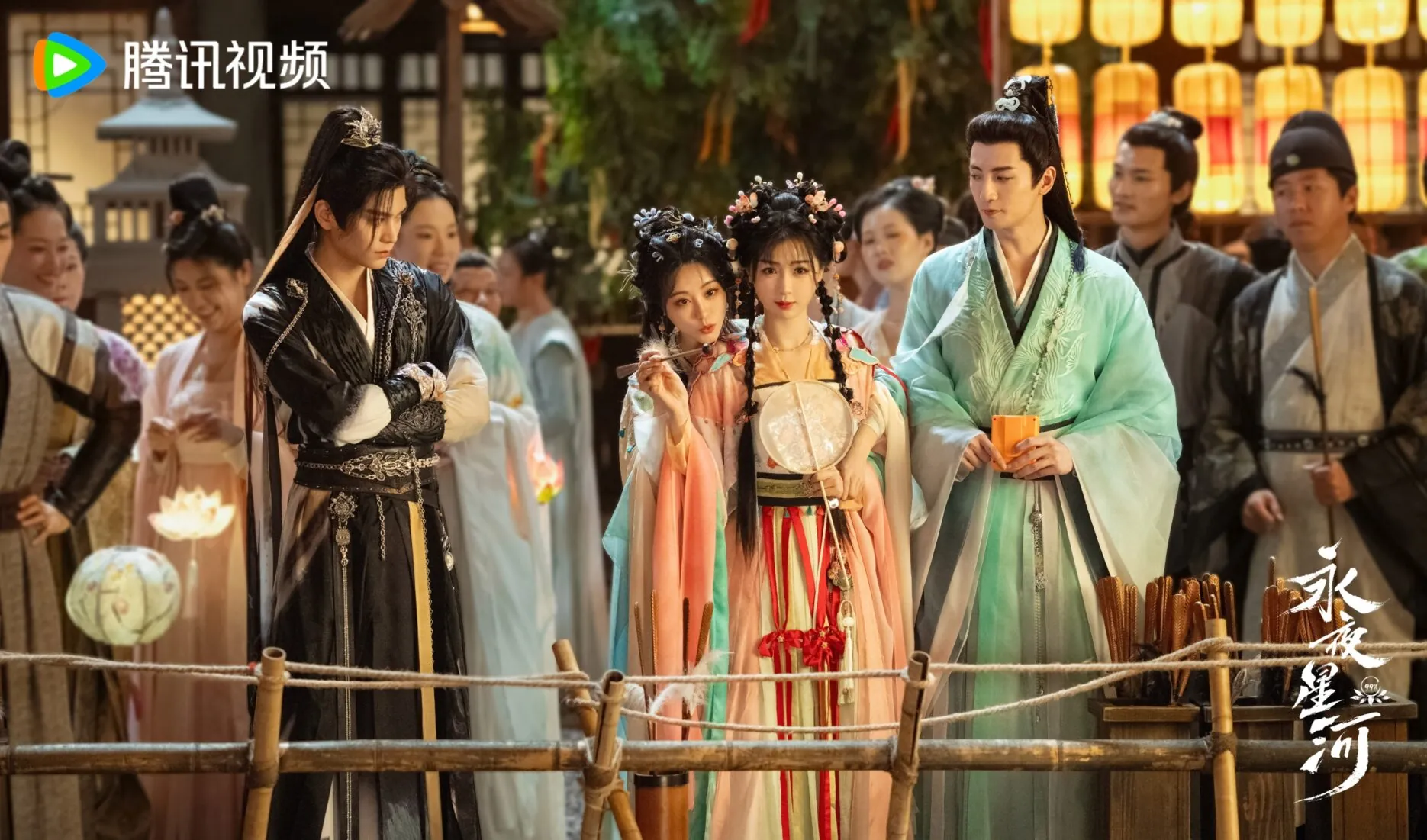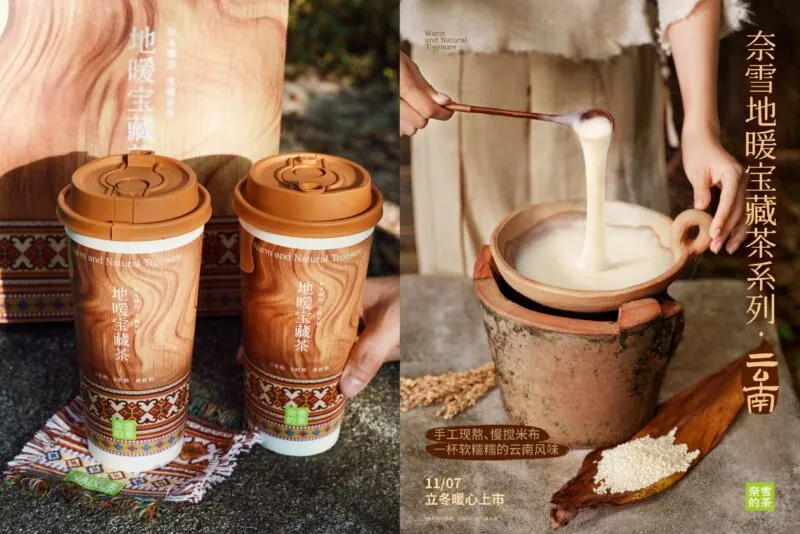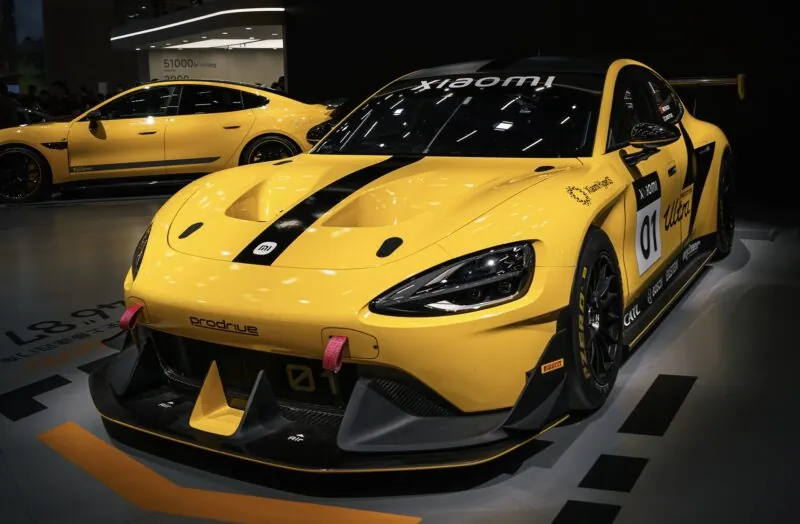Tencent’s Love Game in Eastern Fantasy (永夜星河) is currently the hottest web series in China. As was the case with Joy of Life and Blossoms Shanghai, brands are trying to collaborate with the IP to go beyond just commercials. Starring Esther Yu Shuxin and Ding Yuxi, the show is a “cyberpunk period drama” which features Yu’s character entering a monster-fighting fantasy world. It is also available on Netflix.
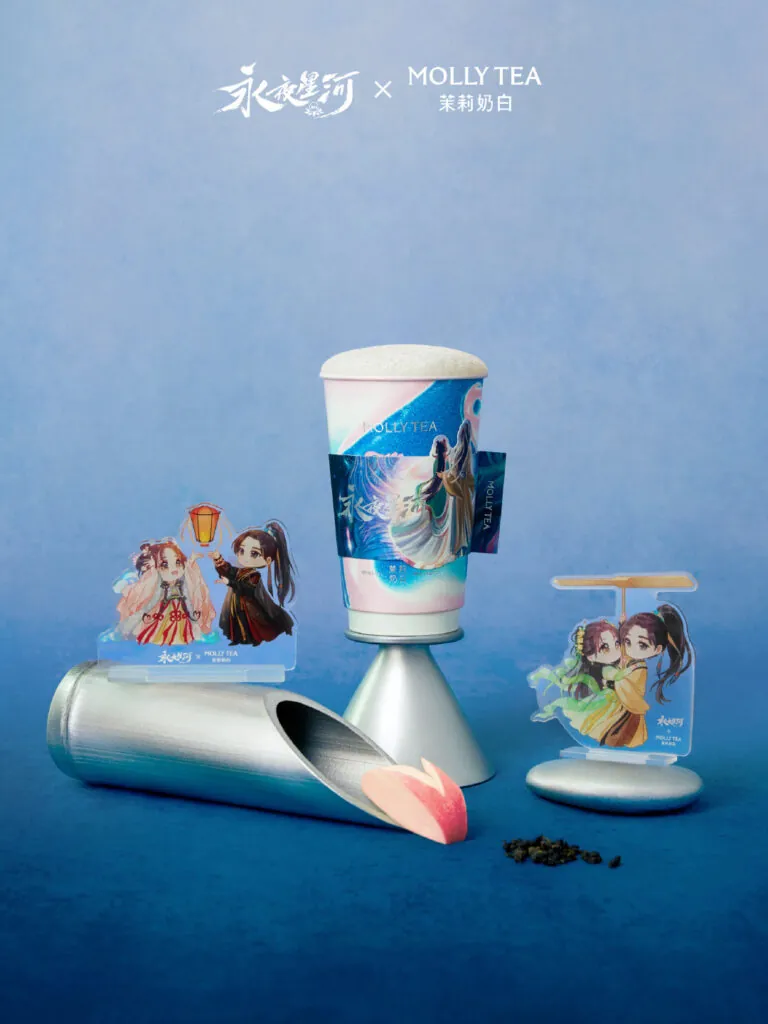
Love Game quickly topped Tencent’s ranking. Love Game and its competitors The Story of Pearl Girl from Youku (which premiered on the same day as Love Game), as well as iQIYI’s Fangs of Fortune, consistently remain within the top 5 across platforms. The triumvirate of hit web series is being hailed as the “saviours” of period “idol drama” (偶像剧, usually romance or romcoms featuring idols or popular stars).
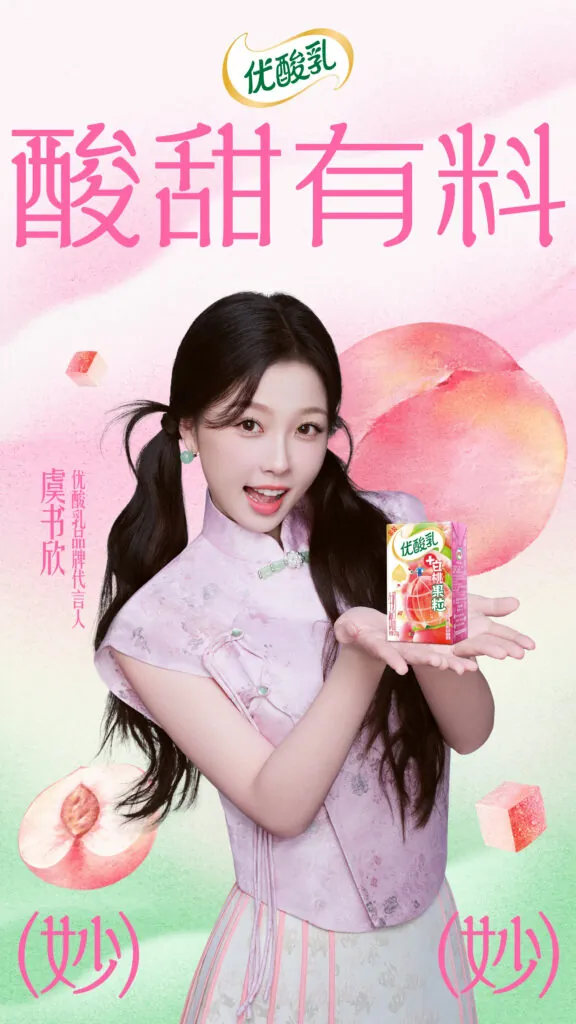
Like many hit TV series before, the viral popularity quickly attracted collaborations, usually with sponsors of the show. As is typical with most collabs, a tea or coffee brand will launch drinks as well as merch. Love Game in Eastern Fantasy chose Molly Tea, which is popular for its design-centric approach. Other collabs include Xuanma, a sponsor known for its salted egg yolk pastry. Yili Yoghurt also launched a campaign with Yu.
But there are also unexpected “collaborators”. Similar to how The Tale of Rose attracted the viral meme-tic campaign of the Beijing tourist authority with one line about “who’s in Beijing”, the series attracted many travel authorities from different parts of China to join in on the fun by creating content around the show.
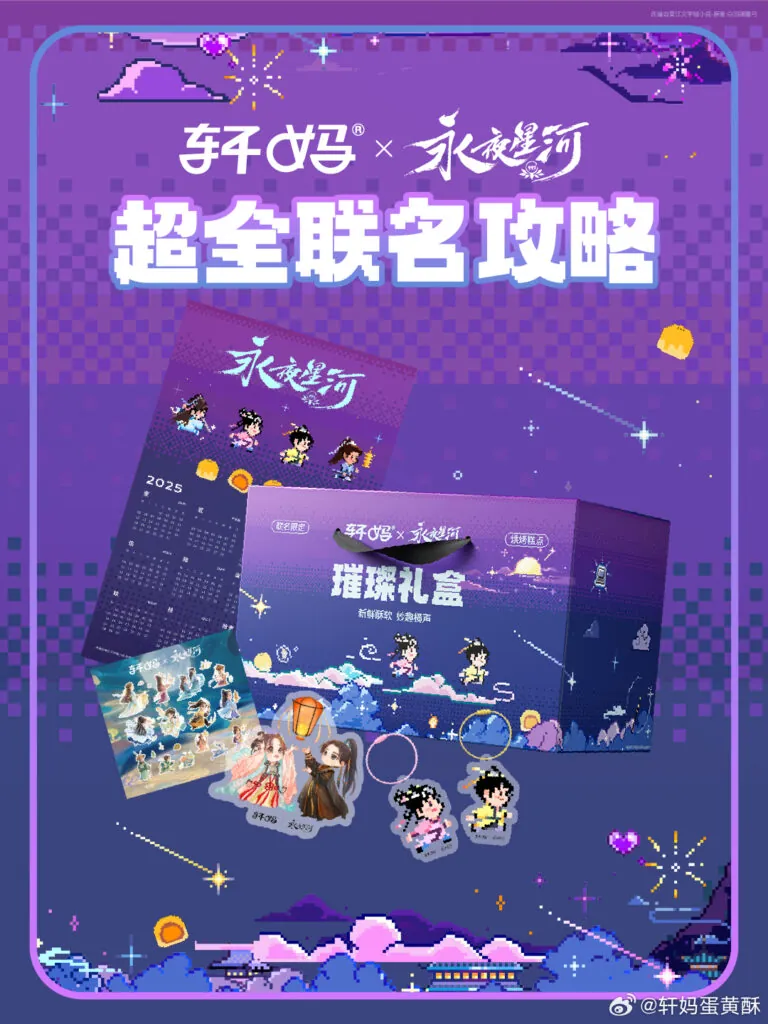
In this regard, the series’ competitor Pearl Girl directly teamed up with the Municipal Bureau of Culture and Tourism of Beihai, Guangxi, for exhibitions and events surrounding the southern pearl and the Maritime Silk Road. Fangs of Fortune, on the other hand, partnered with ChaPanda for a more conventional tea collab.
Although Molly Tea has been accused of “hunger marketing”, the sponsors/collaborators have been quite successful, especially in harnessing the online buzz of the show. But unconventional usage of the virality of the memes from travel authorities and collaborating with tourist bureaus can be seen as an inspired move, especially when the trend of cultural tourism and museum fever persists among Chinese travellers.




